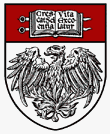

Unix Systems Programming
CSPP 51081
The Links Page


Unix Systems Programming
CSPP 51081
The Links Page
 Computing Resources
Computing Resources
 Introduction to Unix
Introduction to Unix
 bash Shell
bash Shell
 Text Editing on Unix
Text Editing on Unix
 Unix Resources
Unix Resources
 C Programming
C Programming
 Programming Style Guide
Programming Style Guide
 Programming Tools
Programming Tools
 Systems Programming References
Systems Programming References
 Socket Programming References
Socket Programming References
 Thread Programming References
Thread Programming References
 Social History of Unix and
Linux I remember watching Buck Rodgers.
Social History of Unix and
Linux I remember watching Buck Rodgers.
 Computing Services
Computing Services
 CSPP Computing Services
CSPP Computing Services
 Computer Science Instructional Services
The Mac and Linux Lab in basement A of Regenstein Library. Much
useful information on what is available on the Macs.
Computer Science Instructional Services
The Mac and Linux Lab in basement A of Regenstein Library. Much
useful information on what is available on the Macs.
 Setting-up a remote account
Setting-up a remote account
 Connectivity Package SSH homepage
Connectivity Package SSH homepage
 General Search for Machines
General Search for Machines
 Searching for Accessible Machines
Searching for Accessible Machines
 Debian 3.0 distribution . This is
a list of programs provided with the Debian 3.0 distribution found on
the CSPP machines.
Debian 3.0 distribution . This is
a list of programs provided with the Debian 3.0 distribution found on
the CSPP machines.